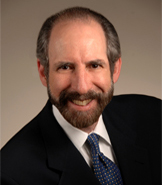
Central Planner Ron Germain Reinvents Round Wheel
Last few years have seen a parade of fools coming up with various central planning ideas on how to fix the US biomedical funding system. Last year, we covered the efforts of Bruce Alberts, Marc W. Kirschner, Shirley Tilghman, and Harold Varmus, who are all accomplished scientists, but clueless central planners (as if there is another category). The best evidence that they are not worth listening to is that they were among the leaders of NIH politburo, when the system went downhill. You can do far better by taking George Bush’s suggestions on how to fix Iraq or David Petraeus’ advice on achieving marital bliss.

Today, it is the turn of Ron Germain, who is the Chief of Laboratory of Systems Biology and the Chief of Lymphocyte Biology Section at NIH. Germain is proud to advertise his central planning efforts (‘spearheading’ :)), as you can see from his webpage.
In 2006, Germain spearheaded a systems immunology program at the National Institute of Allergy and Infectious Diseases (NIAID), which included the development of software to build and test complex models. More recently he’s helped establish the Center for Human Immunology (CHI) at the NIH, an interdisciplinary effort with the goal of translating analyses of the human immune system into therapies for immune-mediated diseases.
[Summary: Germain wasted tons of other people’s money on doing things he would never spend his own money on.]
Yet, what Germain proposes is a tacit acknowledgement that central planning failed. The core of his proposal is summarized in the following four sentences.
Once the new hire is in place, the new faculty member then would have 57 years (this could vary among disciplines) to pursue whatever they wish, with no need for conventional project specific R01 funding.
[snip]
Several issues arise in terms of the starting junior faculty proposal, first
among them being the source of the funding. I believe that the best mechanism is to provide the appointing institution with block grants that can only be used for such new faculty support. This is because the institutions make the appointments, and a national parsing of support would be hard to coordinate with such hiring decisions in advance.
Essentially Germain proposes a centrally-planned decentralization, where the ultimate decision-making about junior faculty funding will be done far away from Kremlin. That is such a radical idea that Germain fails to mention it was how the universities always funded their research before N** organizations took control in the 1950s for physics and 1970s for biomedical science. It is like reinventing round wheel after government legislature mandated using square wheels for fifty years.
The other failure of Germain is not to see the logical extension of his own ideas. If central planning failed, as he tacitly acknowledged, then to what extent did it fail? If decentralization is good at early career level, would it be good at later career as well? If he did so, he would have come to the same conclusion as us copied below, but he would have also lost his spearheading job at NIH. It is difficult to get a man to understand something, when his salary depends on his not understanding it, and Germain is venturing into dangerous territories.
Our proposal -
Whenever we criticize the planners, some others ask what we would do to fix the problem, as if we are dying to be another group of central planning fools. Yes, we do have a plan too and here it is. US government should shut down all science funding agencies immediately and make a very public announcement about it. That will have two salubrious effects
(i) People will have more money in their pockets and they will support science through other less wasteful channels not involving central planners.
(ii) People will see that the only remaining role of government is to waste massive amounts of money to fight wars in countries they cannot find in map. That will hopefully start a clamor for reining in the military, which will lead to more money in the pockets of people, and thus more money for science through (i).
-————————————————–
As I said in 2013 and say again now, the existing biomedical science funding system needs to be abandoned completely and rebuilt from scratch. Some thoughts on how to do it are in the following two links.
US Science Funding Proposal for a Better Alternative
US Science Funding Proposal for a Better Alternative (Part II)